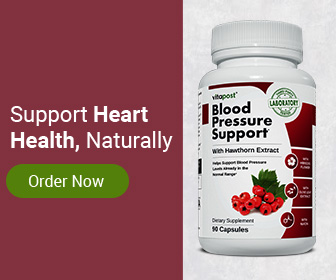Blood pressure is a crucial aspect of our overall health and well-being. It is the force that circulates blood on the walls of blood vessels. Blood pressure can vary throughout the day, but if it stays high, it can lead to high blood pressure, also known as hypertension. Hypertension is a medical condition where the force of blood against the walls of the arteries is persistently high, and it is a significant cause of cardiovascular diseases like heart attacks, strokes, and kidney diseases. According to medical experts, normal blood pressure ranges between 110/70 and 125/80. When blood pressure is high, it can damage the blood vessels, heart, and kidneys, causing serious problems that can be fatal.
Unfortunately, hypertension is often called the "silent killer" because it typically does not cause any symptoms, and many people may not even know that they have high blood pressure. Hypertension can go undetected for years, causing progressive damage to the heart, kidneys, liver, and blood vessels. One of the most critical aspects of hypertension is that it can cause the tiny capillaries in the eyes to bleed. However, some people may experience symptoms such as headaches, blurred vision, nausea, and chronic fatigue.
While about 90-95% of the causes of hypertension are unknown, some factors may lead to high blood pressure. Obesity, excessive alcohol consumption, family history of high blood pressure, eating too much salt, and aging are some of the leading causes of hypertension. Living a sedentary lifestyle, not consuming enough potassium and calcium, and hardening of the arteries can also cause hypertension.
Fortunately, there are several lifestyle changes that can help prevent and manage high blood pressure. These lifestyle changes include weight loss, reducing salt intake, regular exercise, and limiting alcohol consumption to two drinks a day for men and one drink a day for women and lighter-weight men. Consuming a diet rich in fruits, vegetables, and low-fat dairy products while limiting fat intake can also help manage blood pressure levels.
In addition to these lifestyle changes, medication can be prescribed to help manage high blood pressure. However, the type of medication and dosage depends on the severity of the blood pressure and any other underlying health conditions like diabetes or damage to other organs.
It is essential to note that people who are concerned about their blood pressure levels should always consult with their doctors and other health experts before making any significant lifestyle changes. This is because some lifestyle changes can have unintended side effects or may not be appropriate for individuals with certain health conditions.
High blood pressure is a severe medical condition that can result in fatal consequences if left unmanaged. In 2002 alone, high blood pressure claimed the lives of over 40,000 Americans. Thus, it is crucial to pay attention to blood pressure levels and take action to prevent or manage hypertension. With the proper lifestyle changes, dietary adjustments, and medication, high blood pressure can be prevented, managed, and controlled.
For example, Sarah is a 45-year-old woman who has been living a sedentary lifestyle for years. She has gained weight and eats a lot of processed and high-salt foods. She recently started experiencing frequent headaches and fatigue but did not think much of it. During a routine check-up, Sarah's doctor discovered that her blood pressure was high, and she was diagnosed with hypertension. Sarah's doctor recommended lifestyle changes like regular exercise, reducing salt intake, and consuming a diet rich in fruits, vegetables, and low-fat dairy products while limiting fat intake. Sarah followed her doctor's recommendations, lost weight, and incorporated regular exercise into her daily routine. With these changes and medication, Sarah was able to manage her hypertension and prevent any further damage to her heart, kidneys, and blood vessels.
In conclusion, high blood pressure is a severe medical condition




Comments
Post a Comment